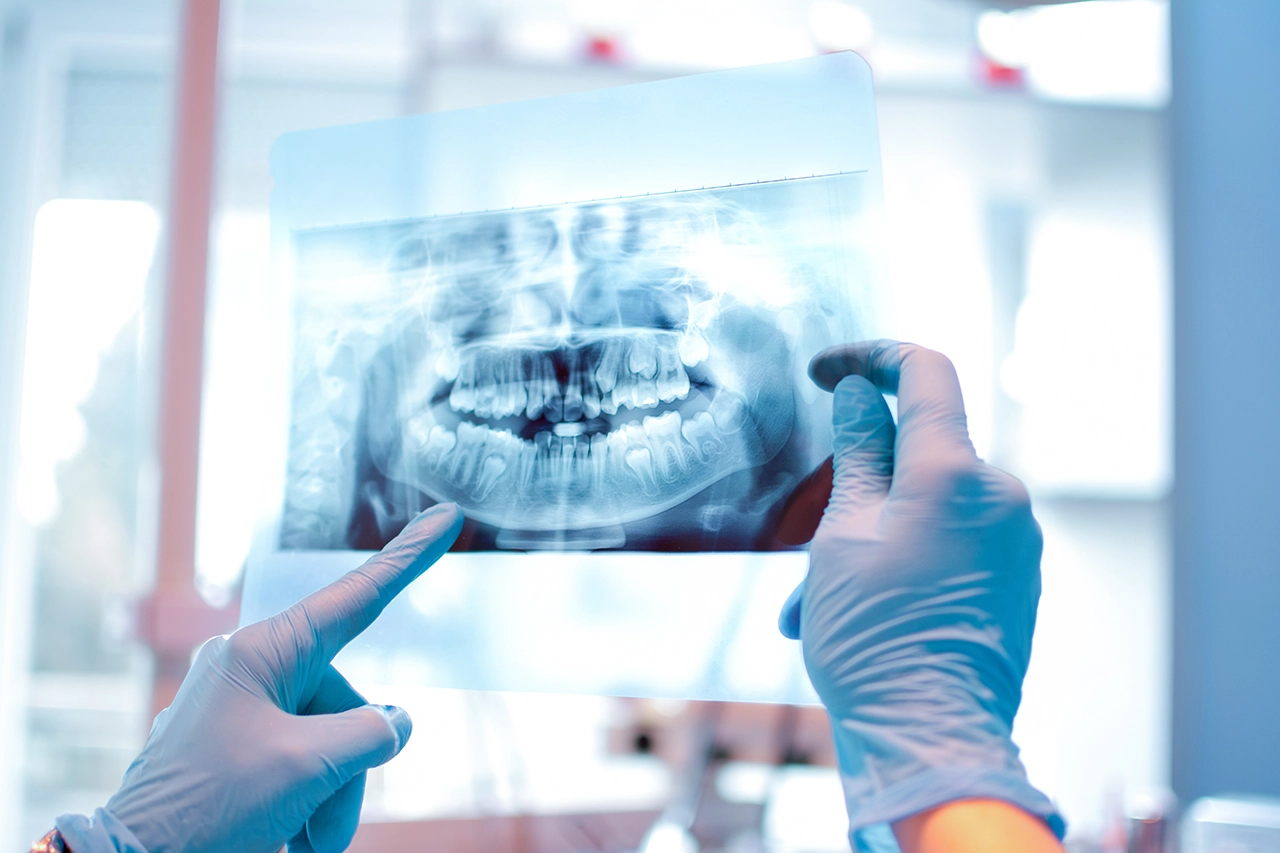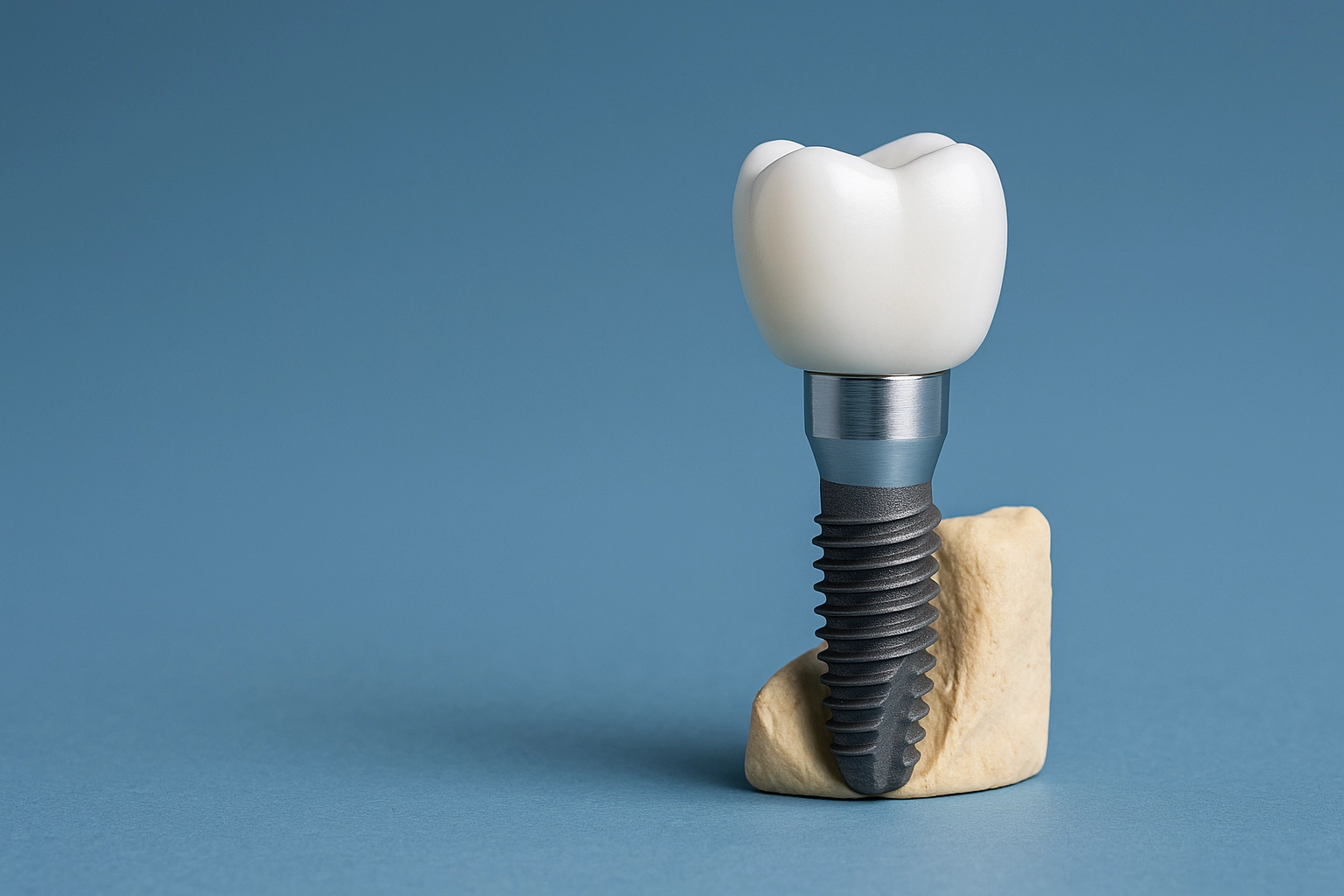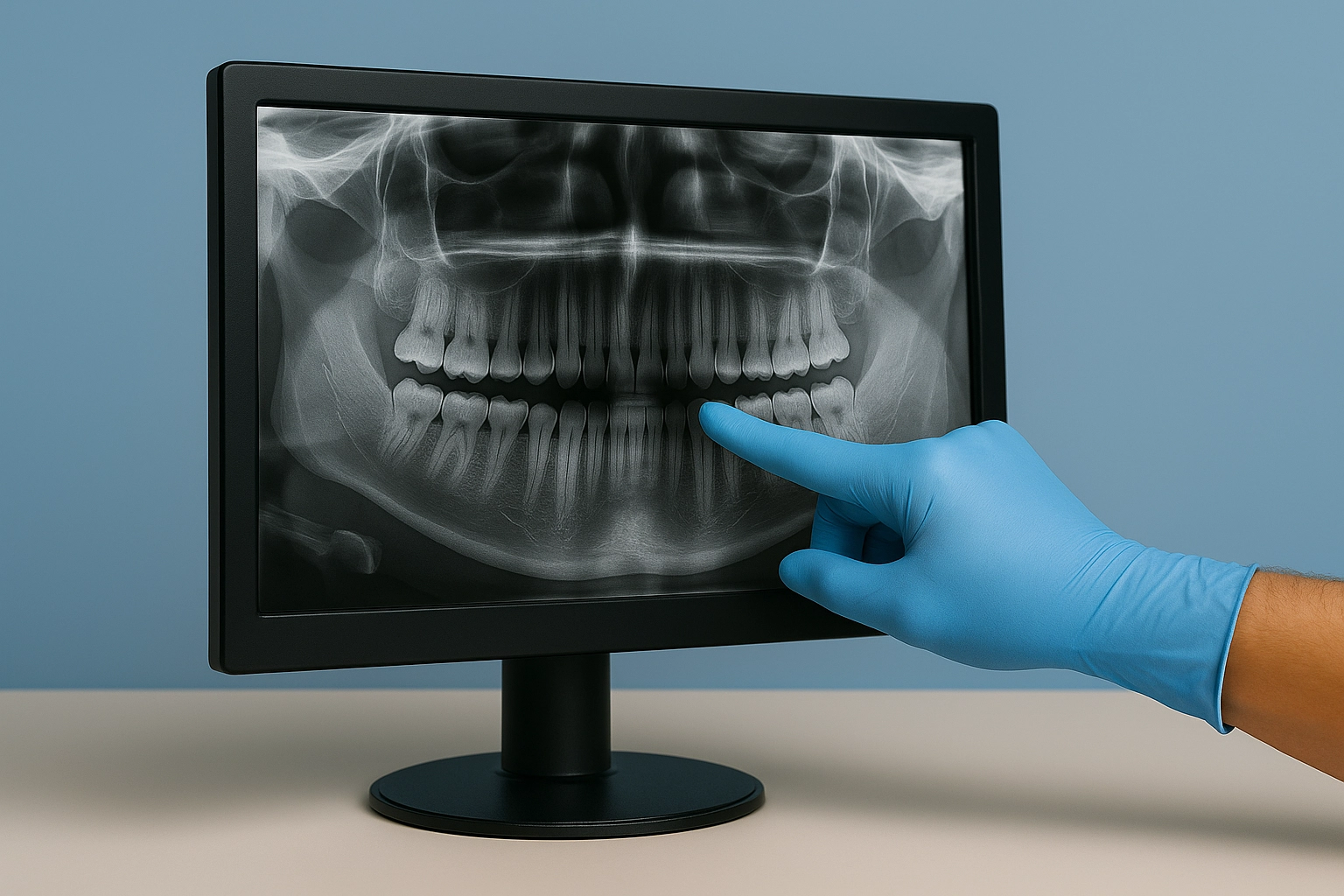
Dental Implants in London - Restore Your Smile Today
Tooth loss can significantly impact one's confidence, oral health, and overall quality of life. Whether due to injury, decay, or disease, missing teeth can lead to difficulties in chewing, speaking, and maintaining proper oral hygiene.
Dental implants have emerged as a reliable and long-lasting solution to restore both function and aesthetics.
For residents in London, accessing high-quality dental implant services is crucial for achieving optimal results.
Understanding Dental Implants
Before considering dental implants, it's essential to understand what they are and the various types available to suit individual needs.
What Are Dental Implants?
Dental implants are artificial tooth roots, typically made of titanium, surgically inserted into the jawbone to support replacement teeth or bridges. They provide a stable foundation for fixed or removable replacement teeth that are designed to match your natural teeth. Unlike dentures, implants do not slip or cause bone damage, offering a more permanent and comfortable solution.
Types of Dental Implants Available in London
Several types of dental implants are available to cater to different needs:
- Single Tooth Implants: Ideal for replacing a single missing tooth without affecting adjacent teeth.
- Multiple Tooth Implants: Used when several teeth are missing, supporting bridges or partial dentures.
- All-on-4 and All-on-6 Implants: Suitable for patients missing most or all teeth, these involve placing four or six implants to support a full arch of teeth.
- Zygomatic Implants: An option for patients with significant bone loss in the upper jaw, anchoring implants into the cheekbone (zygomatic bone).
The Dental Implant Procedure

Understanding the dental implant procedure can help set expectations and alleviate any concerns about the process.
Step-by-Step Guide to the Implant Process
- Initial Consultation: A comprehensive examination, including X-rays and 3D imaging, to assess bone structure and develop a personalized treatment plan.
- Implant Placement: Under local anesthesia, the implant is surgically placed into the jawbone. Over the next few months, the implant integrates with the bone in a process called osseointegration.
- Abutment Placement: Once healed, an abutment is attached to the implant to hold the new tooth.
- Crown Placement: A custom-made crown is affixed to the abutment, completing the restoration.
Advanced Techniques and Technologies
Modern dental practices in London utilize advanced technologies to enhance implant procedures:
- 3D Imaging and Planning: Allows for precise placement of implants, reducing surgery time and improving outcomes.
- Guided Implant Surgery: Utilizes computer-generated guides for accurate implant positioning.
- Immediate Load Implants: In certain cases, a temporary tooth can be placed on the same day as the implant, reducing treatment time.
Choosing the Right Clinic in London - Factors To Consider

Selecting the appropriate dental clinic is crucial for the success of your implant treatment.
When choosing a dental implant clinic in London, consider the following:
- Experience and Qualifications: Ensure the dental professionals are experienced in implantology and have relevant certifications.
- Technology and Facilities: Modern equipment and facilities can enhance the accuracy and comfort of the procedure.
- Patient Reviews and Testimonials: Look for positive feedback from previous patients to gauge satisfaction levels.
- Aftercare Services: Comprehensive aftercare is crucial for the success and longevity of dental implants.
Spotlight on Brighton Implant Clinic
Brighton Implant Clinic, with its award-winning services, offers comprehensive dental implant solutions. Their team of experienced professionals utilizes state-of-the-art technology to provide personalized care.
With multiple branches across East and West Sussex, including proximity to London, they are a convenient choice for those seeking high-quality dental implant treatments.
Dental Implants in London - Cost and Financing
Understanding the financial aspects of dental implants can help in planning and decision-making.
Understanding the Cost of Dental Implants in London
The cost of dental implants in London varies based on several factors:
- Number of Implants: Single implants are less expensive than full-mouth restorations.
- Type of Restoration: Complex procedures like All-on-4 may cost more due to additional components and surgery time.
- Additional Procedures: Bone grafting or sinus lifts, if required, can add to the overall cost.
On average, a single dental implant in the UK can cost between £1,800 and £3,000.
Financing Options and Insurance Coverage
Many clinics offer financing options to make dental implants more accessible:
- Payment Plans: Spread the cost over several months with interest-free or low-interest plans.
- Insurance: While NHS coverage for implants is limited, some private insurance plans may cover a portion of the cost.
- Clinic-Specific Offers: Some clinics provide discounts or package deals for multiple implants.
Dental Implants Post-Procedure Care and Maintenance

Ensuring the longevity and success of your dental implants requires diligent post-operative care and ongoing maintenance. Understanding the steps involved can help you protect your investment and maintain optimal oral health.
Immediate Post-Operative Care
After your dental implant surgery, it's crucial to follow your dentist's instructions to promote healing and prevent complications:
- Rest and Recovery: Limit physical activity for the first 3-4 days post-surgery to reduce swelling and aid healing.
- Diet: Stick to a soft, mild, and nutritionally balanced diet for 2–4 days. Avoid hot liquids and spicy foods. Chew on the opposite side of the implant site for at least two weeks.
- Oral Hygiene: Begin gentle brushing the day after surgery, avoiding the surgical area. After 24 hours, rinse your mouth gently with a warm saltwater solution several times a day, especially after meals.
- Swelling and Discomfort: Apply ice packs to the cheek adjacent to the surgical site for 15–20 minutes on and 10 minutes off during the first 48 hours. This helps minimize swelling. Over-the-counter pain relievers like ibuprofen can manage discomfort and reduce inflammation.
- Avoid Smoking: Refrain from smoking for at least two weeks post-surgery, as it can impede healing and increase the risk of implant failure.
Long-Term Maintenance Tips
Proper daily care is essential to prevent peri-implant diseases and ensure the longevity of your dental implants:
- Brushing: Use a soft-bristled toothbrush or an electric toothbrush to clean all surfaces of your teeth and implants at least twice a day. Opt for low-abrasive, tartar-control toothpaste to avoid scratching the implant surface.
- Flossing: Floss daily using unwaxed tape or implant-specific floss to clean around the implant and under the gumline. Water flossers can also be effective, especially for hard-to-reach areas.
- Mouth Rinse: Incorporate an antimicrobial mouth rinse into your routine to reduce bacterial load and prevent infection.
- Regular Dental Visits: Schedule check-ups every 3–6 months for professional cleaning and to monitor the health of your implants. During these visits, your dentist will assess the implant's stability and the condition of the surrounding tissues.
- Avoid Harmful Habits: Do not use your teeth to open packages or bite on hard objects like ice or pens. If you grind your teeth at night, consider using a nightguard to protect your implants.
By adhering to these guidelines, you can maintain the health of your dental implants and enjoy a confident, functional smile for years to come.
Frequently Asked Questions (FAQs)
How long do dental implants last?
With proper care and maintenance, dental implants can last for decades. Their longevity depends on factors like oral hygiene practices, regular dental check-ups, and avoiding harmful habits such as smoking or teeth grinding.
Are dental implants suitable for everyone?
Most adults in good general health are candidates for dental implants. However, adequate jawbone density is necessary to support the implant. Conditions like uncontrolled diabetes, heavy smoking, or certain medications may affect healing and implant success. A thorough evaluation by your dentist will determine your suitability.
Is the implant procedure painful?
The implant procedure is typically performed under local anesthesia, minimizing discomfort during the surgery. Post-operative pain is usually manageable with over-the-counter pain relievers and subsides within a few days.
What is the recovery time after implant surgery?
Initial healing after implant placement takes about 1–2 weeks. However, the complete osseointegration process, where the implant fuses with the jawbone, can take 3–6 months. During this period, it's essential to follow your dentist's care instructions to ensure successful integration.
Can smokers get dental implants?
While smokers can receive dental implants, smoking can impede healing and increase the risk of implant failure. It's strongly recommended to quit smoking before and after the implant procedure to enhance success rates and overall oral health.
Conclusion
Dental implants offer a reliable and long-lasting solution for replacing missing teeth, restoring both function and aesthetics. By understanding the procedure, selecting a qualified clinic, and committing to diligent aftercare, you can ensure the success and longevity of your implants.
If you're considering dental implants in London, consult with experienced professionals to explore your options and embark on the journey to a revitalized smile.
Book your free dental implant consultation today with Brighton Implant Clinic and take the first step toward restoring your confident smile.










